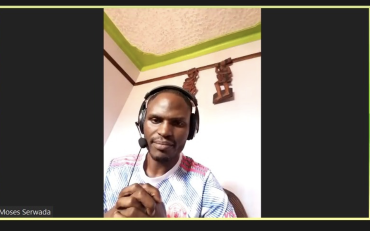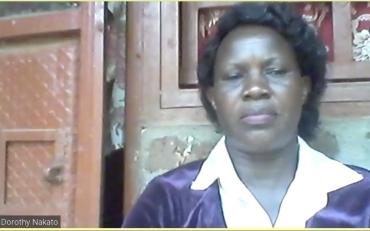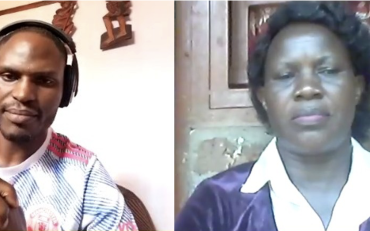On 22 February 2022, the International Disability Alliance (IDA) held a Community of Practice’s informative webinar with Inclusion Works partners to present a series of case studies developed by fellows on CRPD Article 27 - Work and Employment. Through this work, IDA aims at documenting a cohesive position on how Article 27 and Sustainable Development Goal (SDG) 8 shall be implemented, including the necessary conditions for this to happen.

Four fellows (Moses Serwada, IDA - IFHOH (International Federation of Hard of Hearing People) fellow from Uganda; Dorothy Nakato, IDA-WNUSP (World Network of Users and Survivors of Psychiatry) fellow from Uganda; Ishiyaku Adamu, IDA-WBU (World Blind Union) fellow from Nigeria; and Ashura Michael, IDA-WFD (World Federation of the Deaf) fellow from Kenya presented the key findings of their case studies, which researched the employment situation in Uganda, Nigeria, Kenya and Malawi of different groups of persons with disabilities, including youth and women with disabilities, persons with albinism, blind persons and persons with psychosocial disabilities. The fellows then gave some recommendations for all stakeholders to realise CRPD based inclusive employment in the formal sector, including for the private sector and for government agencies.

The fellows also highlighted that while the COVID-19 pandemic has provided a challenge to the inclusion of persons with disabilities in the workplace, it is also an opportunity. Necessary modifications were done in the workplace to allow for social distancing and remote working was incentivized. If properly designed and applied, technology can thus help in eliminating barriers for persons with disabilities in employment.
The case studies and summaries will be soon published on the IDA’s website.
Below a recap of the main recommendations expressed by the fellows for inclusive employment:
a) Recommendations for the private sector:
- Partner and collaborate with organisations of persons with disabilities (OPDs) for training and for support with awareness raising and information materials.
- Collaborate with OPDs to understand the concept of reasonable accommodation for persons with disabilities
- Employers’ organisations should collaborate with OPDs to raise awareness on the issues of persons with disabilities and to understand what inclusion means
- Reasonable accommodation shall be provided throughout the recruitment process, from advertisement of the job opening, to interviews and appointments
- Employers should have an equal opportunity policy so that Persons with Disabilities are encouraged to apply.
b) Recommendations to government agencies:
- Carry out awareness raising through relevant ministries, departments, and agencies to make sure people in service are aware of the situation and issues of persons with disabilities.
- Strengthen periodic data collection, analysis, and dissemination on the employment situation of persons with disabilities.
- Promote policies to waiver taxes for younger entrepreneurs with disabilities as an incentive to engage in productive and meaningful entrepreneurship.
- Review policies, legal framework to ensure that they are in time with the CRPD, particularly Article 27 when it comes to the employment of persons with disabilities.
- Focus on deaf issues and provide necessary support to promote inclusive employment like provision of sign language interpreters at the workplace.
- Provide skills training for those groups that are most marginalised, such as women and youth with psychosocial disabilities.
